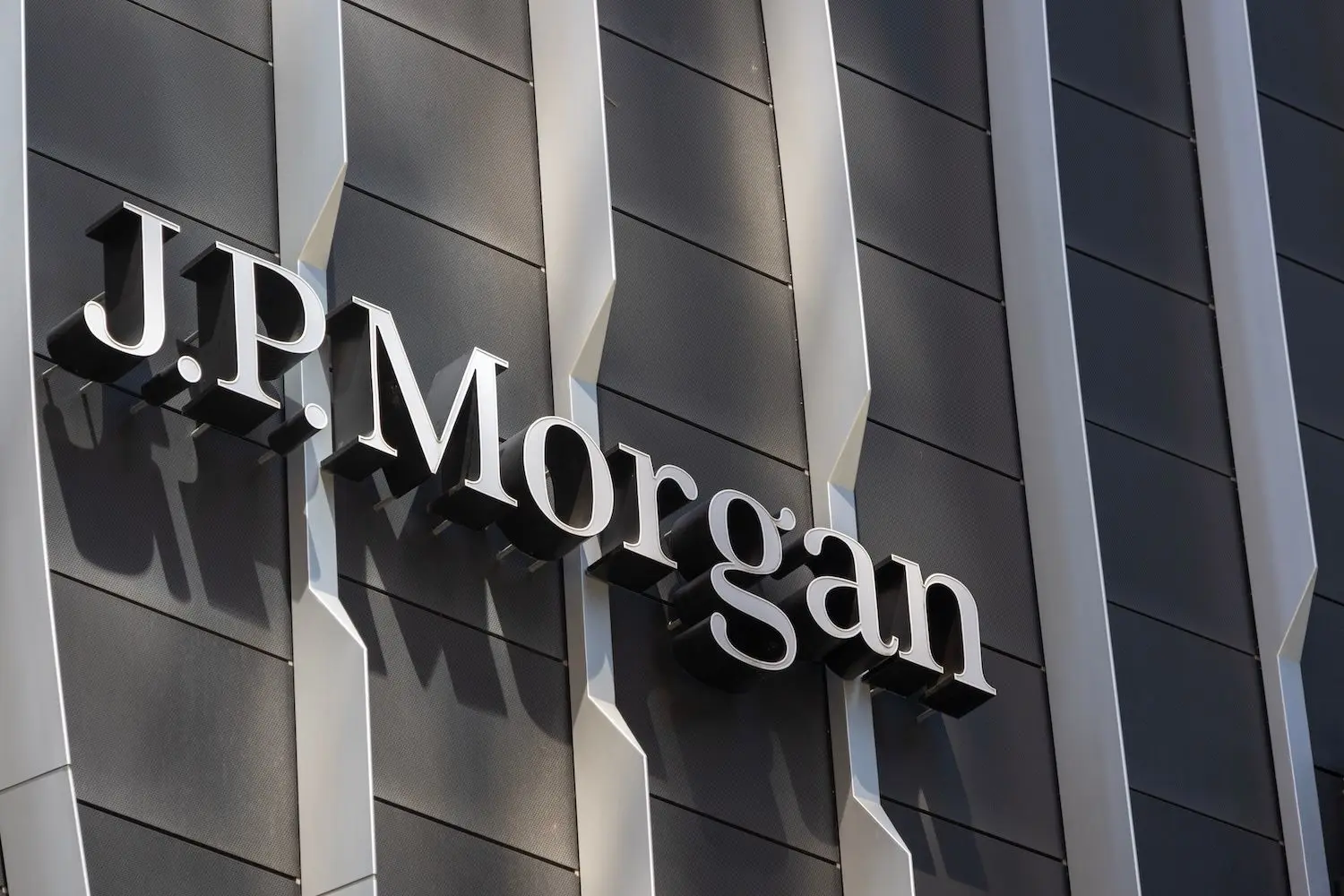JPMorgan Chase reported second-quarter earnings of $14.9 billion Tuesday, beating analyst expectations despite a 17% decline from the previous year. The nation's largest bank posted earnings of $5.24 per share on revenue of $45.68 billion, exceeding Wall Street forecasts as fixed income trading and investment banking revenues outperformed projections.
What to Know:
- JPMorgan earned $5.24 per share versus the $4.48 estimate, with revenue of $45.68 billion beating the $44.06 billion forecast
- Fixed income trading revenue jumped 14% to $5.7 billion, roughly $500 million above estimates, while investment banking fees rose 7% to $2.5 billion
- CEO Jamie Dimon warned of persistent economic risks from tariffs, geopolitical tensions, and fiscal deficits despite praising the resilient U.S. economy
Trading Operations Drive Quarterly Performance
The bank's trading divisions capitalized on market volatility during the quarter as President Donald Trump's trade policy initiatives created turbulent conditions across global markets. Fixed income trading revenue surged 14% to $5.7 billion, substantially exceeding the StreetAccount estimate by approximately $500 million. Currency, rates, and commodities trading activity drove much of this outperformance.
Equities trading revenue climbed 15% to $3.2 billion, matching analyst expectations. The trading results helped offset challenges in other business segments and contributed significantly to the bank's ability to exceed overall earnings forecasts.
Even with the strong trading performance, total revenue declined 10% to $45.68 billion compared to the same period last year. This comparison was affected by the bank's previous Visa stake, which had provided substantial gains in the prior year period.
Investment Banking Shows Recovery After Slow Start
Investment banking fees increased 7% to $2.5 billion, surpassing StreetAccount estimates by roughly $450 million. Higher debt underwriting and advisory activity drove this improvement, marking a significant turnaround from earlier expectations.
CEO Jamie Dimon noted that investment banking activity "started slow" in the quarter following Trump's April 2 trade announcements, which created market confusion. However, activity accelerated as the quarter progressed and markets stabilized. This recovery explains how investment banking results improved dramatically from guidance provided at the bank's May investor conference, where management had projected a "mid-teens" percentage decline in revenue.
The investment banking rebound reflected broader market conditions as clients adjusted to new trade policies and resumed deal-making activities. Advisory fees and debt underwriting both contributed to the stronger-than-expected performance.
Credit Provisions and Net Interest Income Outlook
JPMorgan's quarterly results benefited from a $2.8 billion provision for credit losses, which came in below the $3.14 billion analysts had expected. This lower provision rate suggests the bank maintains confidence in its loan portfolio quality despite ongoing economic uncertainties.
The bank raised its net interest income guidance to approximately $95.5 billion, representing about $1 billion more than previous forecasts. Net interest income, a crucial profitability measure representing the difference between deposit costs and investment returns, remains a key focus for investors monitoring bank performance.
These credit and interest income metrics provide insight into JPMorgan's fundamental banking operations beyond its trading and investment banking divisions.
CEO Warns of Persistent Economic Risks
Despite celebrating the quarterly results, Dimon repeated his frequent warnings about various economic risks facing the United States. "The U.S. economy remained resilient in the quarter," Dimon stated in the earnings release. "The finalization of tax reform and potential deregulation are positive for the economic outlook."
However, Dimon emphasized that "significant risks persist – including from tariffs and trade uncertainty, worsening geopolitical conditions, high fiscal deficits and elevated asset prices." His comments reflect ongoing concerns about policy uncertainty and global economic conditions that could impact future performance.
The CEO's cautionary tone contrasts with the strong quarterly results, suggesting management remains vigilant about potential challenges ahead. Dimon has consistently highlighted these risk factors in recent earnings calls and public statements.
Broader Banking Sector Performance
JPMorgan's earnings report came alongside results from other major financial institutions, with Citigroup and Wells Fargo also exceeding analyst estimates on Tuesday. Goldman Sachs, Bank of America, and Morgan Stanley are scheduled to report their quarterly results Wednesday.
The bank's ability to boost dividends and repurchase shares while maintaining strong capital levels demonstrates its financial stability. This performance occurs against a backdrop of regulatory changes and market volatility that have challenged the broader banking sector.
Closing Thoughts
JPMorgan Chase's second-quarter results demonstrate the bank's ability to navigate volatile market conditions while exceeding analyst expectations across key business segments. The strong trading and investment banking performance, combined with improved credit provisions and raised net interest income guidance, positioned the bank favorably despite CEO warnings about persistent economic risks.



